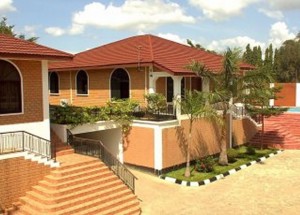TMA asked to stop further field inspection
 The Tema Metropolitan Assembly (TMA) has been urged to immediately stop the further field inspections it carries out as part of requirements for the issuance of building permit.
The Tema Metropolitan Assembly (TMA) has been urged to immediately stop the further field inspections it carries out as part of requirements for the issuance of building permit.
Mr Samuel Duodu, Technical Advisor for the Business Enabling Environment Project (BEEP) under the Ministry of Local Government and Rural Development(MLGRD) said the further field inspections prolong the permit issuance process.
Mr Duodu gave the advice on Tuesday in a presentation on ‘Construction permit reform report’ during the inauguration of the Sub-National Inter Agency Task Team (IATT) for BEEP in Tema.
He stated that when the Statutory Planning Committee (SPC) approves a building or construction permit, it was not necessary for the TMA to conduct any further field inspection.
Such inspection, he said, took between 10 and 15 days after the SPC’s approval leading to unnecessary delays.
The TMA is said to conduct the field inspection to assess the true state of the parcel of land to be used for the said construction.
Mr Duodu suggested that the Assembly could allow the developer to proceed to work after the SPC’s approval while it resorts to its byelaws and other laws to sanction people if they have any misgivings about the land.
He observed that hastening the issuance of permit after the needed documents have been presented would generate more revenue for the Assembly as people will be willing to go for the needed permit.
The Technical Advisor said the 2016 World Bank Doing Business Programme survey report related to construction permits conducted in 2015 revealed that it takes an average of 216 working days to obtain a construction permit for a warehouse in Ghana.
The survey showed that there were about 15 processes to pass through to obtain a permit at a cost of 1.9 per cent of the value of the warehouse.
Mr Duodu charged Assemblies in Ghana to review the processes and merge and delete where necessary as according to him Ghana’s performance was not impressive compared to some countries in sub-Sahara Africa.
He recommended to the Assemblies to develop proactive websites which are business-like, customer friendly and information giving instead of posting pictures and reports of events there.
He also called for a citizen portal which must have downloadable versions of all the needed forms from the various agencies needed to process a construction permit.
This he noted would reduce the many contact days developers went through.
Mr Joseph Obeng-Poku, Director of Policy at the MLGRD, said the BEEP was being piloted by DFID was aimed at accelerating service delivery in the Metropolitan, Municipal and District Assemblies (MMDAs).
He added that it would address the need for an improved Business Enabling Environment in Ghana especially the establishment of realistic time lines for the issuance of permits, among others.
Mr Isaac Ashai Odamtten, Tema Metropolitan Chief Executive, commended the technical team for the report which he described as a very important tool that would help shape the Assembly’s activities.
Mr Odamtten appealed to the task force team to help implement the needed reforms for the better functioning of the TMA and benefit of all especially developers.
Members of the sub-National Agency Task Team on the BEEP comprised of the TMA Works Department, Town and Country Planning, Institute of Surveyors, Institute of Planners, Institute of Architects and the Association of Ghana Industries (AGI).
Source: GNA
